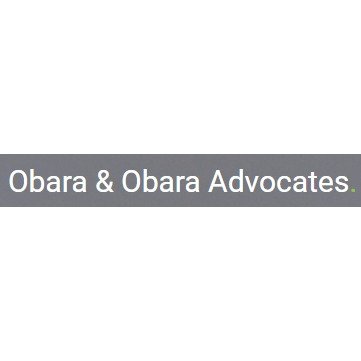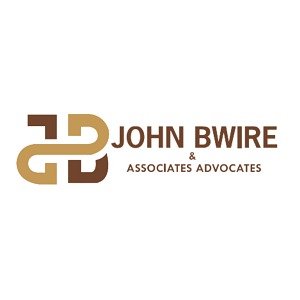Best Job Discrimination Lawyers in Mombasa
Share your needs with us, get contacted by law firms.
Free. Takes 2 min.
List of the best lawyers in Mombasa, Kenya
About Job Discrimination Law in Mombasa, Kenya
Job discrimination in Mombasa, Kenya, like in many places, refers to the unfair treatment of employees or job applicants based on various protected characteristics such as race, gender, age, religion, physical ability, or ethnicity. The Kenyan Constitution and labor laws are designed to protect individuals from discrimination and promote equality in the workplace. Understanding the nuances of these laws is crucial for both employers and employees in handling workplace conflicts effectively and ensuring fair treatment.
Why You May Need a Lawyer
There are several situations where individuals might seek the help of a lawyer specializing in job discrimination:
Filing a Complaint: If you experience discrimination at work and wish to file a formal complaint, navigating the legal requirements can be complex.
Legal Representation: In cases where a discrimination claim leads to legal proceedings, having a lawyer is vital for effectively presenting your case.
Understanding Rights: An attorney can help clarify your rights and the strength of your case under the current legislation.
Negotiating Settlements: Sometimes, disputes can be resolved through mediation and settlements outside court, where a lawyer can be instrumental in negotiating a fair outcome.
Local Laws Overview
The Constitution of Kenya provides a fundamental basis for anti-discrimination in employment through its Bill of Rights. Key legislation includes the Employment Act of 2007, which prohibits discrimination on various grounds and provides specific protections for vulnerable groups. The National Cohesion and Integration Act also addresses certain forms of discrimination, especially related to ethnicity and race.
In addition to national laws, Mombasa as a hub for diverse workers has local applications of these laws which address and incorporate cultural sensitivities and promote inclusive work environments.
Frequently Asked Questions
What constitutes job discrimination in Mombasa?
Job discrimination can occur in hiring, firing, promotions, salary decisions, job assignments, laid-offs, training, and any other condition of employment based on protected characteristics such as gender, age, race, ethnicity, religion, or disability.
How can I prove I faced discrimination at work?
Proving discrimination often requires demonstrating that a decision was made based on a bias against a protected characteristic. Evidence can include discriminatory policies, witness accounts, or patterns of behavior indicative of bias.
What steps should I take if I experience discrimination?
You should document instances of discrimination as much as possible, including dates, locations, people involved, and the nature of the discriminatory behavior. Reporting the issue to your HR department or immediate supervisor is also a recommended step.
Can I file a discrimination claim anonymously?
While it’s possible to file complaints anonymously, anonymity might limit the investigation process. It’s often beneficial to discuss concerns confidentially with a lawyer to explore the best strategy.
How long do I have to file a discrimination complaint?
Under Kenyan law, it is advisable to file complaints within a reasonable time frame, although specific time limits can apply based on the nature of the case. Consulting a lawyer promptly can help ensure deadlines are met.
Are there any exceptions to anti-discrimination laws?
Certain bona fide occupational qualifications might allow exceptions to anti-discrimination laws, however, these are very narrowly tailored and must be necessary for the operation of the business.
What types of compensation are available for job discrimination victims?
Compensation can include reinstatement, back pay, promotions, front pay, compensatory damages for pain and suffering, and sometimes punitive damages to punish egregious conduct.
Can I be fired for reporting discrimination?
Retaliation against an employee for reporting discrimination is strictly prohibited by law. If you face retaliation, you may have grounds for an additional legal claim.
Can a lawyer help if I face retaliation after reporting discrimination?
Yes, a lawyer can help you understand your rights, present evidence of retaliation, and pursue a claim if necessary, ensuring protection from further work-related consequences.
Where can I find qualified lawyers in Mombasa?
Check with local bar associations, legal aid societies in Kenya, or online directories for qualified lawyers who specialize in employment and discrimination law in Mombasa.
Additional Resources
For more assistance, the following resources might be helpful:
The Kenyan National Commission on Human Rights (KNCHR): Offers support and guidance on various human rights issues including discrimination.
Federation of Kenya Employers (FKE): Provides insights and resources for both employers and employees regarding labor laws.
The Ministry of Labour and Social Protection: Useful for information on your rights and obligations under Kenyan employment law.
Kenya Women’s Commission: Especially relevant for cases involving gender-based discrimination.
Next Steps
If you need legal assistance with job discrimination in Mombasa, here are some steps to take:
1. Gather Documentation: Collect any relevant evidence such as emails, texts, records of conversations, and official documents that support your claim.
2. Reach Out for Initial Advice: Consider contacting a local legal aid organization or constituency office for initial guidance and possible representation.
3. Consult a Lawyer: Seek the services of a lawyer who specializes in employment law and can offer personalized legal advice tailored to your situation.
4. File a Complaint: With your lawyer's assistance, formally file a complaint with the relevant governmental body or pursue legal action as advised.
5. Stay Informed: Keep abreast of any communications or developments in your case, and adhere to deadlines and steps advised by your legal representative.
Lawzana helps you find the best lawyers and law firms in Mombasa through a curated and pre-screened list of qualified legal professionals. Our platform offers rankings and detailed profiles of attorneys and law firms, allowing you to compare based on practice areas, including Job Discrimination, experience, and client feedback.
Each profile includes a description of the firm's areas of practice, client reviews, team members and partners, year of establishment, spoken languages, office locations, contact information, social media presence, and any published articles or resources. Most firms on our platform speak English and are experienced in both local and international legal matters.
Get a quote from top-rated law firms in Mombasa, Kenya — quickly, securely, and without unnecessary hassle.
Disclaimer:
The information provided on this page is for general informational purposes only and does not constitute legal advice. While we strive to ensure the accuracy and relevance of the content, legal information may change over time, and interpretations of the law can vary. You should always consult with a qualified legal professional for advice specific to your situation.
We disclaim all liability for actions taken or not taken based on the content of this page. If you believe any information is incorrect or outdated, please contact us, and we will review and update it where appropriate.

















